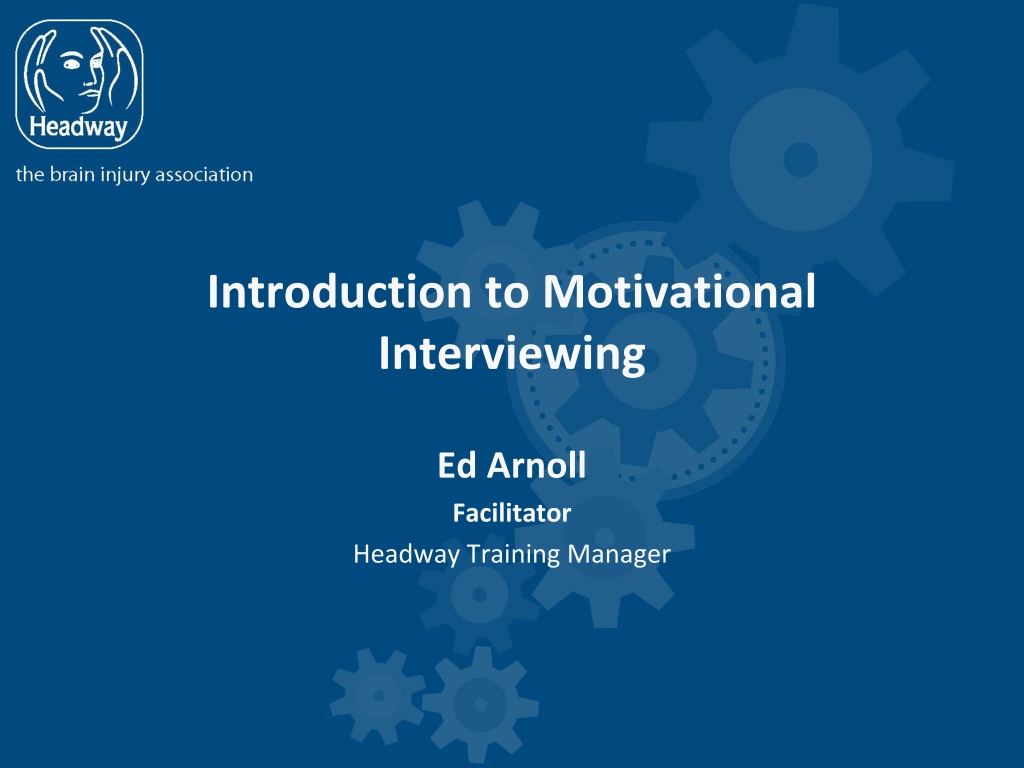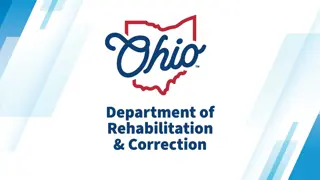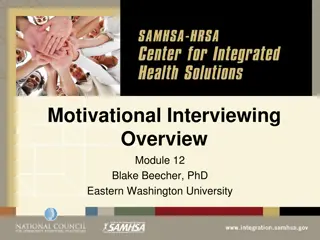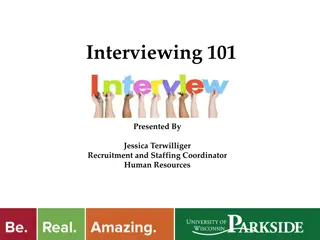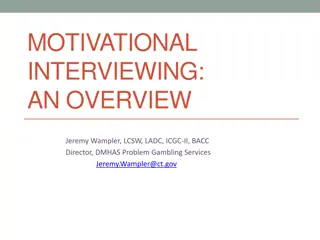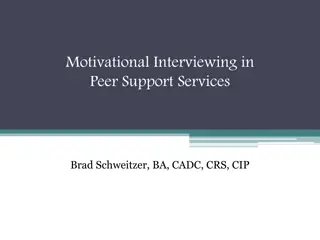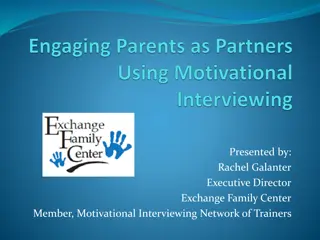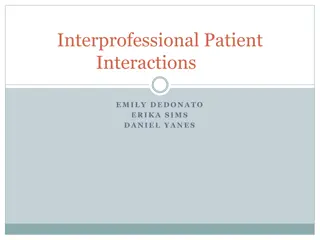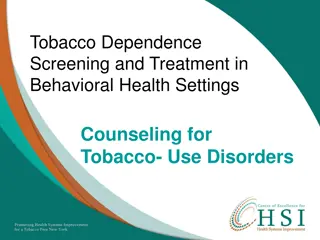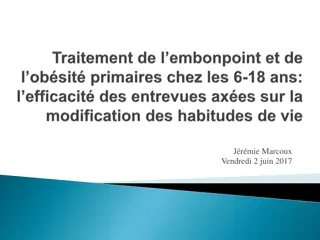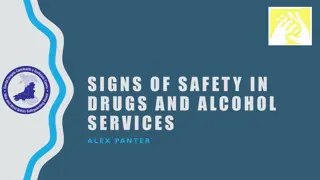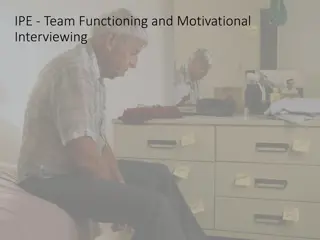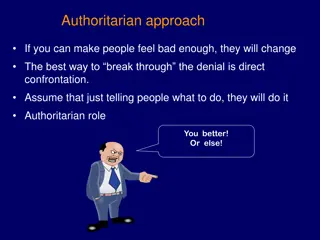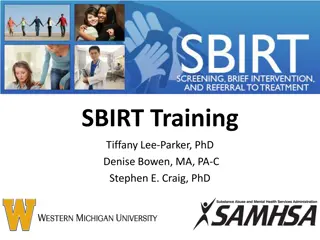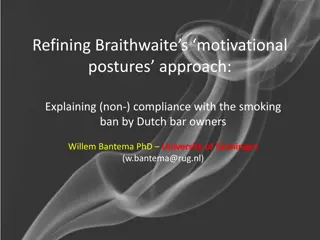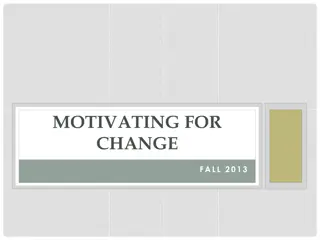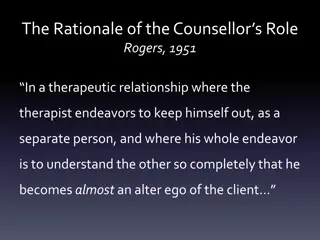Exploring Motivational Interviewing and Engagement Techniques
Motivational Interviewing is a person-centered counseling style that focuses on addressing ambivalence about change. The approach involves stages such as engaging, focusing, evoking, and planning. Understanding the Transtheoretical model and the spirit of Motivational Interviewing are essential components. The therapeutic alliance and quality of engagement play a vital role in predicting rehabilitation outcomes. Techniques like OARS (open questions, affirmation, reflective listening, summarizing) are used to enhance engagement and motivation.
- Motivational Interviewing
- Engagement Techniques
- Transtheoretical Model
- Therapeutic Alliance
- OARS Techniques
Uploaded on Sep 27, 2024 | 0 Views
Download Presentation

Please find below an Image/Link to download the presentation.
The content on the website is provided AS IS for your information and personal use only. It may not be sold, licensed, or shared on other websites without obtaining consent from the author. Download presentation by click this link. If you encounter any issues during the download, it is possible that the publisher has removed the file from their server.
E N D
Presentation Transcript
Introduction to Motivational Interviewing Ed Arnoll Facilitator Headway Training Manager
Learning Outcomes Understanding of the theoretical framework Identify the different stages Utilise techniques to improve engagement Identify resources to further learning
Warm up Could you be motivated to... Find someone you don t know and ask them if they could be motivated to carry out one of the tasks on the list If they can be motivated find out how/why If they can t or they are unsure try and motivate them
Motivational Interviewing Motivational Interviewing is a person centred counselling style for addressing the common problem of ambivalence about change (Miller and Rollnick 2013)
Transtheoretical model Pre contemplation Lapse Contemplation Maintenance Determination/ preparation Lifestyle/ behaviour change Action Lapse
Spirit of Motivational Interviewing Motivational Interviewing Opposite approach Partnership Confrontation Acceptance Absolute worth Accurate empathy Autonomy support Affirmation Non-acceptance Judgement Imposition Authority Looking to fix Evocation Education Compassion Self-interest
Stages of Motivational Interviewing Engaging Focussing Evoking Planning
Engagement The quality of the therapeutic alliance has been shown to predict TBI rehabilitation outcome, client self awareness and treatment compliance. (Klonof et al 1998, Fingfeld-Connett 2009, Schoneberger et al 2006, Sherer et al 2007)
OARS Open questions Not leading Affirmation Acknowledgement of strengths Reflective listening Statement not question Simple /complex /double Two reflections for each question Summarising Let me just check I ve got this right...
Engagement traps Question-answer trap Trap of taking sides Expert trap Labelling trap Premature focus trap Blaming trap Confrontation/denial
Focussing Clear direction Choices in direction Unclear direction Three scenarios
Ambivalence Benefits Cost
Evoking Recognising change talk Desire, Ability, Reason, Need & Commitment Evoking change talk Scaling Elaboration Imagining extremes Looking back/forward Exploring goals/values Exploring pros and cons Responding to change talk EARS-elaboration, affirmation, reflection, summarising
